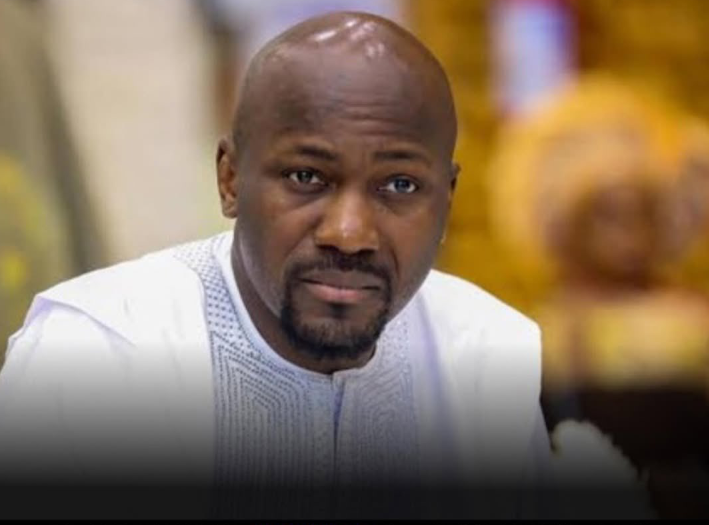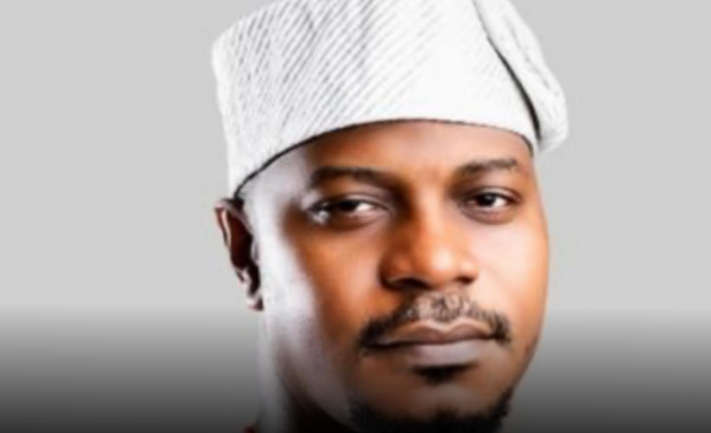
“You Are Sick to Ask That”: Apostle Suleman Fires Back at Critics Blaming Pastors for Nigeria’s Rising Terror Attacks

A fresh wave of controversy has erupted across Nigeria’s religious and social spaces after Apostle Johnson Suleman, the General Overseer of Omega Fire Ministries, strongly rebuked those who routinely blame pastors for staying silent whenever terror attacks or violent incidents occur in the country. Speaking during a church service, the fiery cleric delivered a blunt and emotional response that has since ricocheted across social media platforms, sparking debates about accountability, religious profiling, and national responsibility in the fight against terrorism.
The preacher, known for his outspoken nature, did not hold back as he condemned what he described as a “misdirected culture of blame” targeted specifically at Christian leaders every time insecurity spikes. According to him, the expectation that pastors should be the first to comment on terror-related events is both unfair and illogical, especially when such acts are not carried out in the name of Christianity. His tone was unmistakably sharp when he declared, “You see all the attacks that are going on now, terrorism and all of that. And as soon as it happens, they call pastors, ‘why are pastors not talking?’ You are sick.”
The congregation reacted with mixed emotions—some startled by the bluntness of the statement, others nodding in agreement as the cleric unpacked the reasoning behind his harsh description. Suleman argued that critics often ignore the religious identities associated with perpetrators of terrorism, yet rush to demand commentaries from pastors as though Christianity is linked to such violence. He posed a rhetorical question that visibly stirred the audience: “Have you ever heard somebody before he pulls a trigger say ‘praise the Lord’ and then he shoots somebody? Or he says ‘thank you Jesus’ and he pulls a trigger?”
His point was clear: terror groups in Nigeria do not identify with Christianity, and therefore, pastors should not be burdened with responding as though they are representatives of the ideology behind the violence. “The first people you should call are those in that religion. It’s their religious leaders you should call, not pastors,” he insisted. Suleman stressed that while pastors can speak from the standpoint of humanity and national concern, people must stop pretending not to recognize the obvious associations between certain extremist groups and the religious identities they claim.
His next question drove the message home with unmistakable force: “What do they shout before they kill people?” In a chorus that revealed the congregation’s understanding of his argument, they answered, “Allahu Akbar.” Suleman followed immediately, “Is that a Christian parlance? So why are you calling pastors?”
The cleric’s comments quickly touched off a wave of online reactions. Supporters applauded him for confronting what they see as hypocrisy in public discourse, where Christians are often expected to defend or condemn acts done outside their faith. Many argued that the silence from some religious groups during terror incidents should be questioned, not the voices of pastors who have no direct link to the perpetrators’ ideology.
Critics, however, countered that religious leaders of all faiths have a moral responsibility to speak up in times of national crisis, regardless of who the perpetrators are. They say that pastors, imams, traditional rulers, and public figures all share the burden of shaping public opinion, calming tensions, and promoting peace. Some accused Suleman of stoking division by pointing fingers, arguing that Nigeria’s fragile unity should not be threatened by religious insinuations, especially at a time when extremist violence continues to claim innocent lives.
But to Suleman, the issue is not about rejecting responsibility—it is about addressing a long-standing pattern of misdirected accusations. He argued that pastors are routinely targeted for criticism because they are more visible in the media, more vocal on social issues, and, in many cases, more accessible than leaders of other faiths. “Pastors should speak for the sake of humanity,” he said, implying that even though Christian clerics often condemn violence, they should not be singled out as though they are tied to the events.
Observers note that Suleman’s comments reflect a deeper frustration shared by many Christian leaders who feel that their silence—or even their outspokenness—is constantly scrutinized through an unfair lens. Over the years, prominent pastors across Nigeria have faced backlash for either speaking too boldly or not speaking loudly enough during national tragedies, leading to a cycle of public expectations that rarely seems balanced across different religious communities.
Nigeria’s security crisis, which includes terrorism, banditry, kidnappings, and sectarian conflicts, has created an atmosphere where religious interpretations are often intertwined with public debates. Suleman’s statement taps directly into those tensions, calling for more honest conversations about the root causes of violent extremism and the appropriate channels of accountability.
For some analysts, the cleric’s message was not merely about defending pastors but also about urging Nigerians to confront uncomfortable truths about terrorism—its origins, its motivations, and the societal silence that sometimes accompanies it. They argue that by redirecting blame toward Christian leaders, the public risks ignoring where direct influence is needed most: within the circles where extremist ideologies are bred.
As Nigeria continues to grapple with rising attacks, Suleman’s remarks have added a new dimension to the discourse on national responsibility. His bluntness may have ruffled feathers, but it has undeniably forced attention back to a fundamental question: Who should bear the burden of speaking out against acts tied explicitly to certain ideologies?
For now, the debate is far from settled. Across social media, radio shows, and religious gatherings, Nigerians continue to dissect Suleman’s words, weighing the fairness of his argument against the expectations placed on faith leaders in a deeply religious nation. What seems certain is that the conversation he sparked will not fade quickly. In a climate where every voice counts, and where silence can be mistaken for complicity, the question of who speaks—and who is expected to speak— remains as pressing as the terror threats facing the country.
Whether Apostle Suleman’s stance will shift public attitudes is yet to be seen, but his message has undeniably reverberated across the nation: pastors are not the custodians of every national tragedy, and those demanding explanations from them may need to rethink where their outrage is directed.


